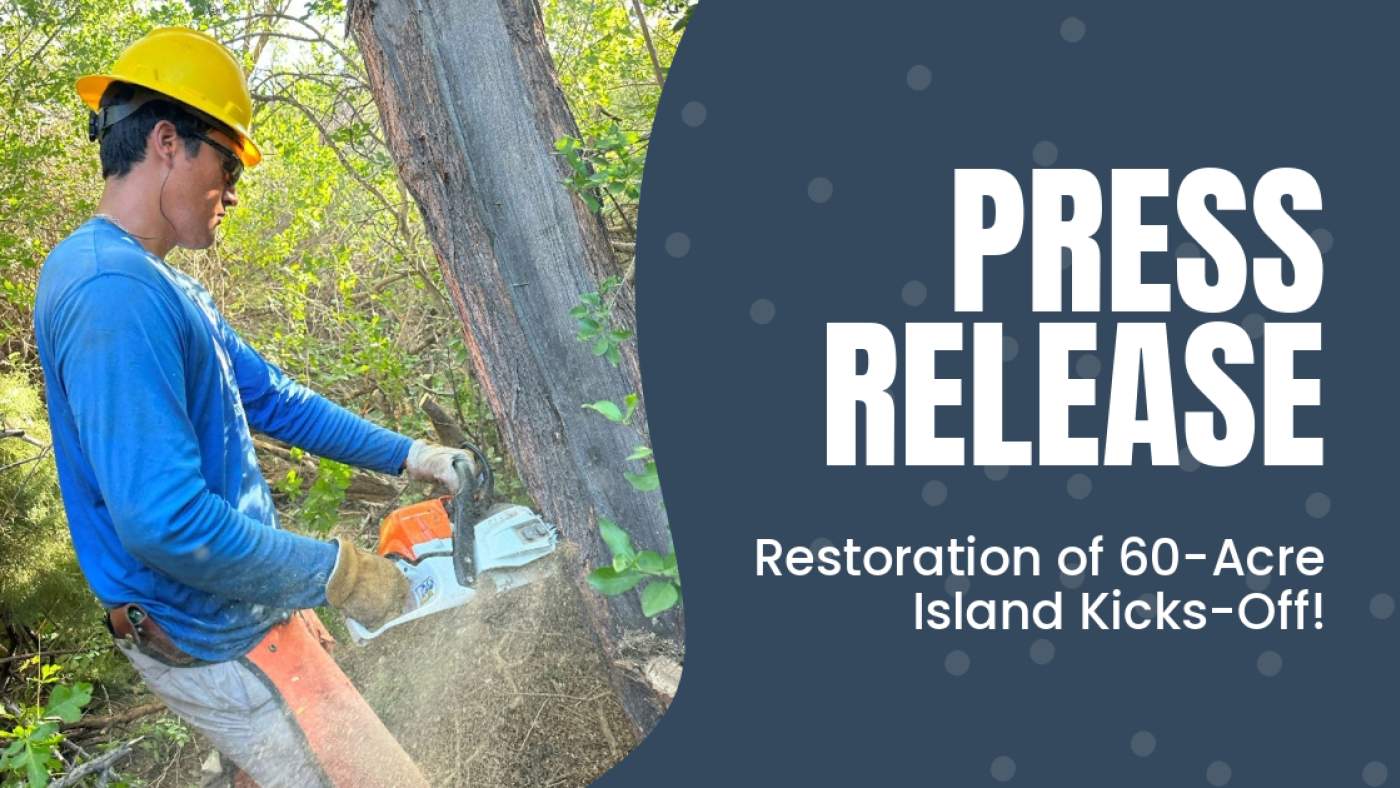Transformative Restoration Project to Revitalize 60-Acre Island Near Riverfront Trail
September 3, 2024 - Grand Junction, CO – A major ecological restoration project kicks off on a 60-acre mid-channel island located adjacent to the Riverfront Trail and several local businesses. This project, a collaborative effort between RiversEdge West, the City of Grand Junction, Mesa County, and other parties, aims to address pressing environmental concerns and enhance the island’s ecological health.
The island, which spans 60 acres, is currently overgrown with invasive species of tamarisk, Russian olive, Siberian elm, and herbaceous weeds. These species pose significant risks from an ecological standpoint and as wildfire hazards, as seen by the two fires on this island this year. The upcoming project will focus on the continued comprehensive removal of these invasive plants and the introduction of a variety of native species to restore and improve the island's natural habitat.
Previous removal was done on the island this year in March through Two Rivers Wildfire Coalition that entailed around 32 acres of mastication for the present invasive species and wildfire risks. Western Vegetation Management performed this fuel reduction service and Western Colorado Conservation Corps crews will be doing follow-up work this September and October to continue the removal and management of invasive species. Revegetation will begin in October this year and be continued into 2025 to establish native species and improve the ecological health and wildlife habitat of this island.
Project Highlights:
· Invasive Species Removal: The project will involve the removal of tamarisk, Russian olive, and Siberian elm trees across as much of the 60-acre island as possible.
· Habitat Preservation: Pockets of both native and non-native trees will be preserved to maintain wildlife corridors and riverfront vegetation for soil erosion control until more native vegetation can be established over time.
· Native Vegetation Planting: The project will include planting willow cuttings, cottonwood poles, and potted shrubs, alongside seeding with native grasses and forbs. These efforts aim to boost plant diversity, provide habitat for local wildlife, outcompete invasive species, and strengthen soil erosion control.
The project’s overarching goals are to greatly reduce the impact of invasive species, enhance the island’s ecological diversity, and improve the health of the natural landscape. “By integrating both preservation and restoration strategies, the project will not only support local wildlife but also contribute to better soil management and reduced wildfire risk.” says Christa Brown, RiversEdge West’s Private Lands Biologist.
The project is a testament to the commitment of the City of Grand Junction, Mesa County, and non-profit partners to environmental stewardship and community well-being. The initiative represents a significant step forward in safeguarding and revitalizing an important natural area that supports both local ecology and the enjoyment of the Riverfront Trail. Funding for this project comes from the Colorado Department of Agriculture via the National Fish and Wildlife Foundation’s America the Beautiful grant.
RiversEdge West is a Grand Junction-based 501 (c) 3 nonprofit dedicated to the restoration of riparian ecosystems through education, collaboration, and technical assistance. By protecting the quality and ecological integrity of riparian lands, REW promotes the economic, social, and cultural well-being of the communities it serves. Visit RiversEdgeWest.org to learn more.
Contact:
Christa Brown – Private Lands Biologist
970-256-7400

